Does ESIC have the teeth to enforce esports integrity?
How the Esports Integrity Coalition plans to keep match fixing and organised crime out of pro gaming.
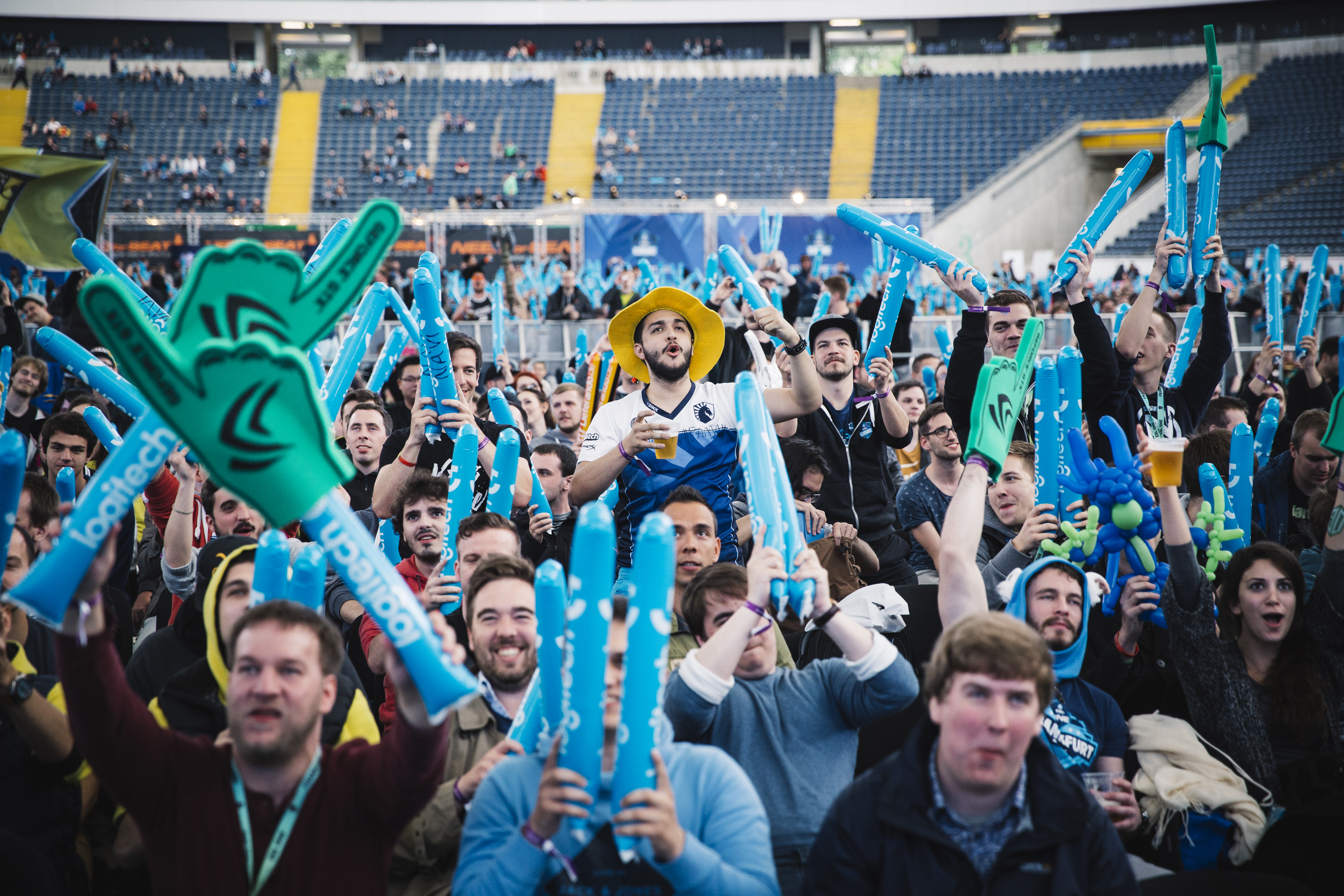
In the skybox at Lord’s Cricket Ground in West London on Tuesday, a familiar scene in the advancing dialogue of esports regulation played out. The launch of the Esports Integrity Coalition (ESIC) was laid out in front of journalists, lawyers and industry members as groundsmen prepared the wickets below.
The choice of a sports venue was symbolic. Esports is trying to mature, and with that maturity comes greater unification and oversight. Ian Smith, commissioner for this latest in a string of organisations cropping up to tackle the multi-tentacled beast of regulation of an expanding esports ecosystem, put forth the central tenets of integrity.
At its core, ESIC is an independent body with three areas of oversight: a code of conduct, for player behaviour; an anti-corruption code, regarding match-fixing, betting, and cheating; and an anti-doping policy, controlling substance abuse. These three codes will be “enforced” by a disciplinary procedure which avoids questions of international jurisdiction by holding an independent “court” via a panel of judges for ESIC to present a prosecution claim to. Across all of these functions, there are six guiding principles: Integrity and respect, fair process, implementation and enforcement of codes, mutual recognition of sanctions, sharing of information, and confidentiality.
The Coalition would provide a common set of standards for every one of its member organisations, and with the help of Sportradar’s Fraud Detection System, keep an eye out for potentially illegitimate matches based on betting anomalies. There would also be a database to ensure sanctions placed on a player in one game stay with them if they transfer to another. In short, ESIC wants to centralise every process for which there are currently either none or hundreds depending on combinations of tournament organisers, publishers, and team organisations.
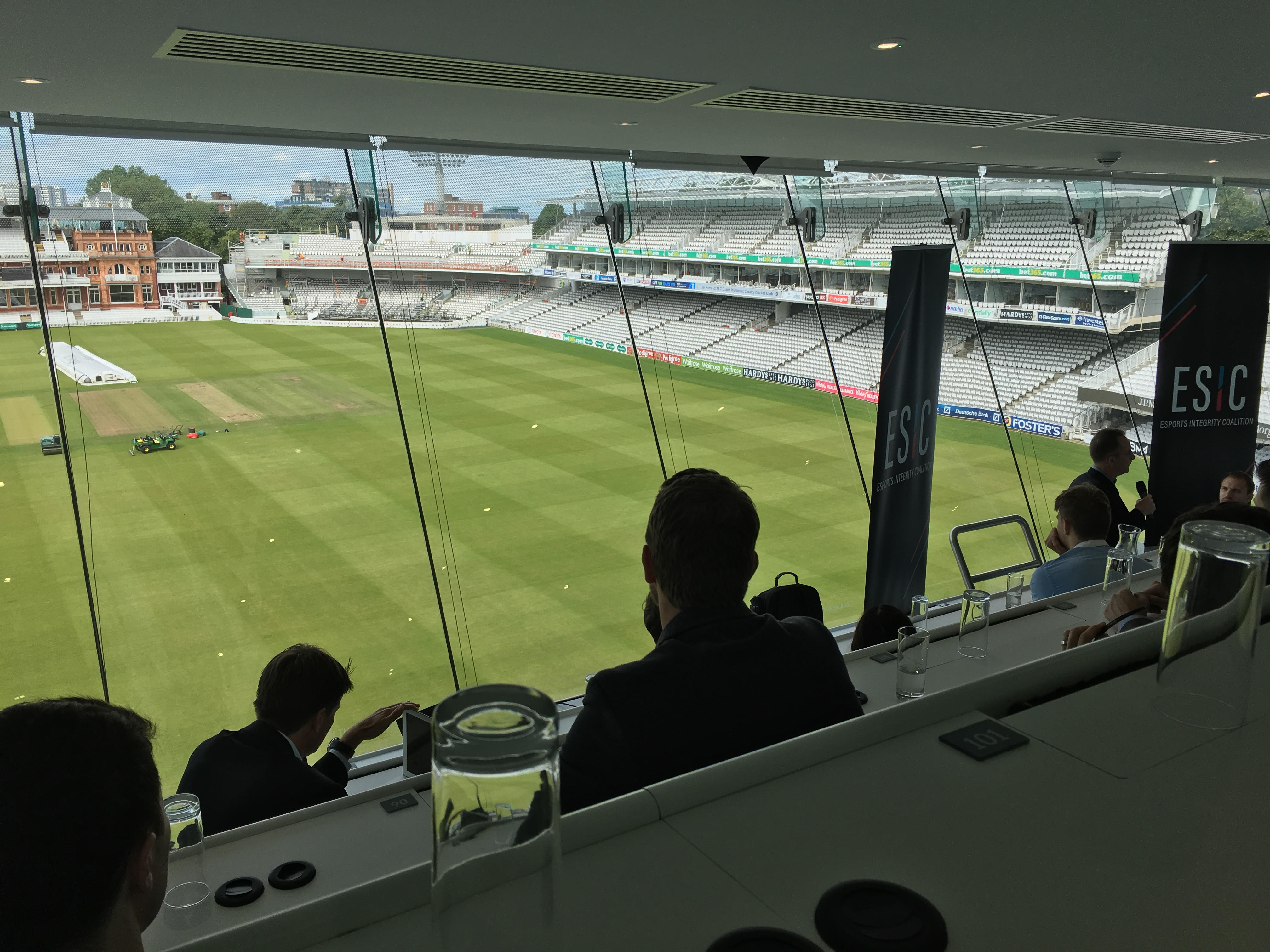
Smith, prior to his involvement with ESIC, was a partner at law firm Clarke Willmott handling player representation for athletes in football, Formula 1 and, of course, cricket. He moved on from private practice in 2004 to take a more direct influence on the law of sports integrity. Six years ago, on the very wickets in front of us, Pakistani fast-bowler Mohammad Amir threw an extraordinary no-ball on the third day of a test match against England.
You don’t want to learn about this stuff. It comes and bites you.
That evening, around 9 PM, the Professional Cricketers’ Association where Smith served as legal director received a phone call informing him that Amir and two teammates were being investigated on spot-fixing allegations. As it happened, all three had been told by a bookmaker to make specific no-balls during an undercover News of the World investigation, and they were running a front page splash on the story the next morning.
“You don’t want to learn about this stuff,” Smith told PC Gamer. “It comes and bites you.” After two decades chasing a set of ethical standards to prevent a repeat of 2010’s scandal in cricket, he was pointed at the comparative badlands of the esports frontier. “A friend working in the commercial side of esports was looking at why major non-endemic sponsors were reluctant to enter esports,” he said.
Keep up to date with the most important stories and the best deals, as picked by the PC Gamer team.
“The ones sponsoring the Olympics and the World Cup and the Euros—your Visas, and your Coca-Colas and Emirates—massive world companies, ought to make up about 30-40% of sponsors if you just look at the numbers, but in fact they only make up 5% and the question is why? And one of the reasons—there are many reasons—but one was the lack of governance and regulation in esports. It's a Wild West when it comes to how sports are governed.”
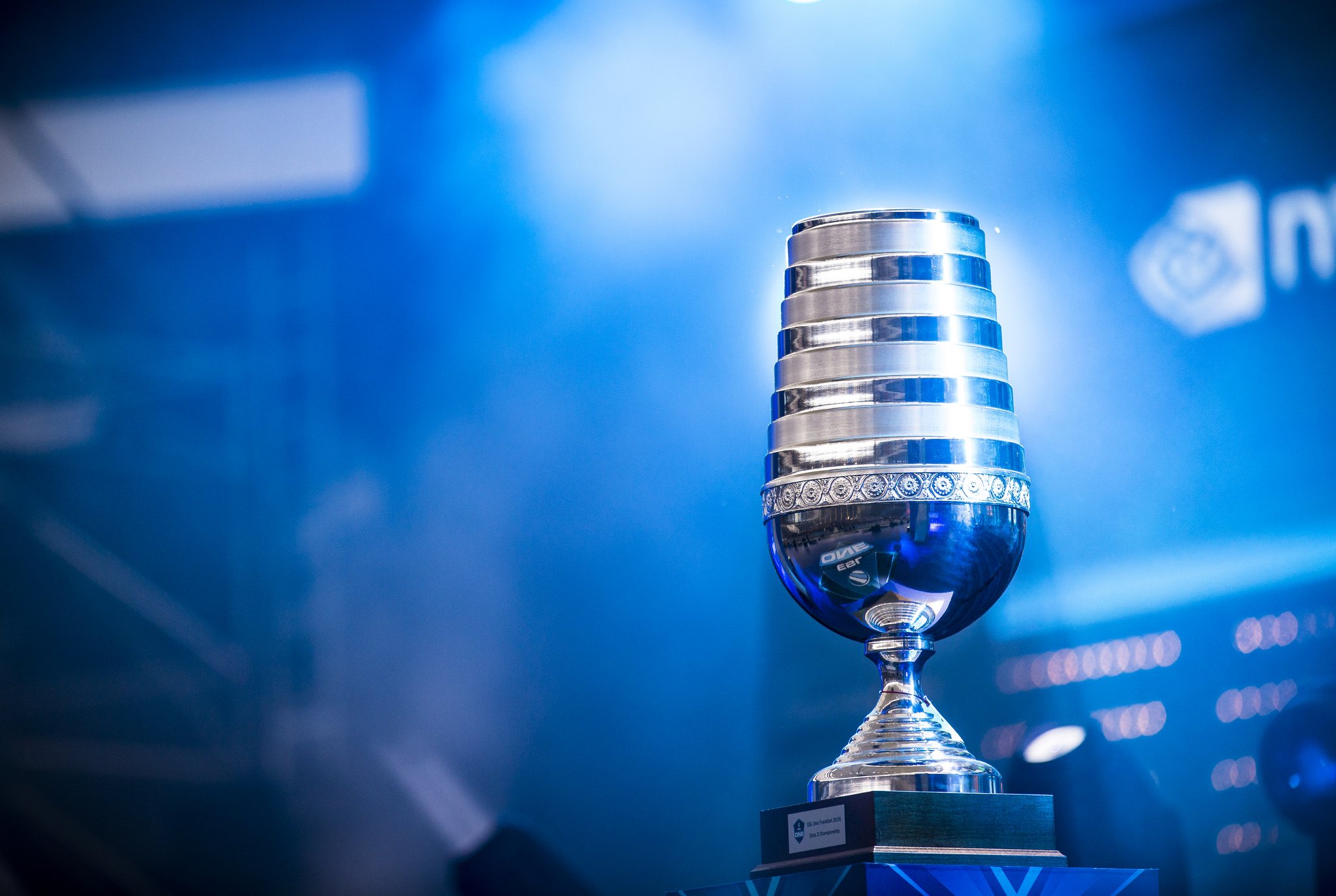
Like any Wild West, esports have spawned a gold rush of people trying to capitalise on a hot new money-spinning industry. In 2016, the industry is expected to generate $463 million in revenue according to a Newzoo market report, and that’s discounting the rapidly growing gambling industry adopting a new source of bettors, regardless of gray-area “skin betting” legality. As with the American frontier, pioneers are the first stage of the gold rush and behind the prospectors come the shovel salesmen, railroad engineers and sheriffs.
In the past few months, esports has seen an explosion of regulatory bodies, mostly centered around Europe and almost all based on traditional sporting bodies. Last week saw the formation of the British Esports Association, there are already associations in South Korea (KeSPA) and internationally (International Esports Federation). And May’s launch of the World Esports Association (WESA) immediately drew confusion over its purpose while suspicion fell on founding organisation ESL for not including other tournament organisers in its creation.
“The main reason why WESA only effectively had ESL involved from the start was because to even come to an agreement in the beginning was a very difficult task,” managing director of ESL UK James Dean told PC Gamer. “If we had other tournament operators involved from the start I think it would have been very very difficult to come to a body that could actually exist because there would be too much argument, or we’d be giving away too many secrets in terms of what we’re doing with the Pro League for example because it has to be an open table at that point.”
Dean was present at ESIC’s launch as ESL is one of the early members of its charter. “When WESA spoke at their press launch about an integrity function, they were referring to ESIC,” said Smith of the relationship between two outwardly similar bodies. “In ESL Pro League, the rules under which they play, the regulations, will be the ESIC code of conduct, the ESIC anti-doping policy and the ESIC anti-corruption code.”
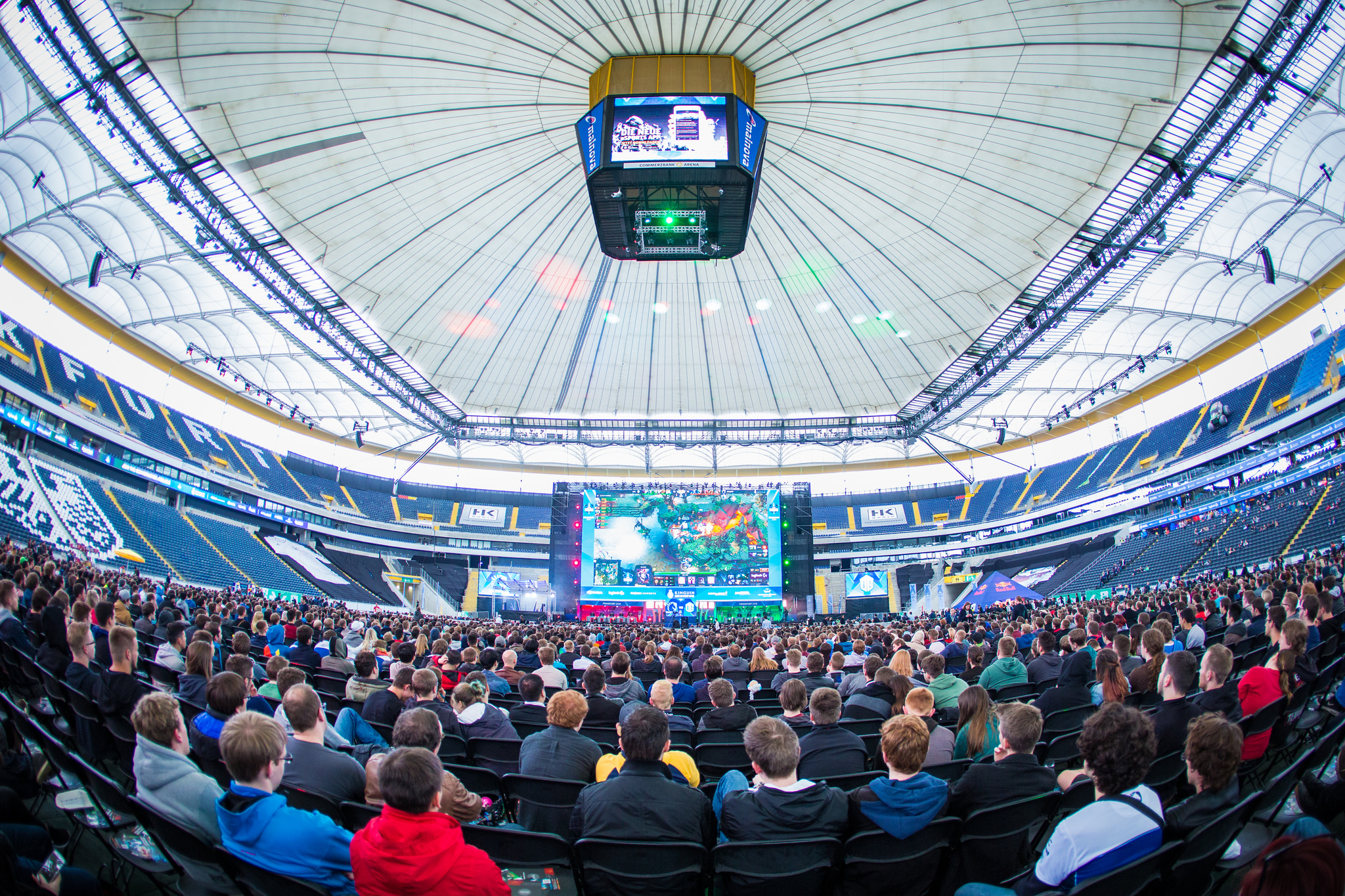
With so many regulatory bodies all attempting to solve issues each of them perceives as most important, is Smith worried ESIC—already encountering the same difficulty in bringing tournament organisers to the table as WESA—could struggle in reconciling the aims of multiple regulatory bodies?
“It's absolutely possible that it becomes a problem,” he admits. “I've spent my life negotiating these particular rapids in traditional sport because, believe it or not, a sport can be 150 years old and still have all those issues around governance. So cricket has had these issues, too. All sports governance is political and esports is no different despite the lack of governance. However, my initial contact with, for example, the IESF has been very cordial. Because they have had an anti-doping programme but they've not had an anti-corruption programme, for example. So, all I can do is sit down and talk and try and find common ground. That's what I've done my whole life.”
...All I can do is sit down and talk and try and find common ground. That's what I've done my whole life.
These sit-downs need to happen with not just other governance bodies, but anyone who needs to abide by ESIC’s codes. The includes bookmakers, equipment suppliers, tournament organisers like ESL and, of course, players. Smith’s vision is that by getting publishers on-board, acceptance of ESIC’s codes by players can be implemented in the same way that EULAs are agreed to at the start of any game, but that’s not been easy going apparently.
ESL makes up one of nine member organisations, including fellow tournament organisers DreamHack (both are owned or majority-owned by Modern Times Group), endemic sponsors Intel, gambling companies Betway and Unikrn, game publisher Ubisoft (under Rainbow 6) and noise-cancelling headset provider Plantronics. Teams are currently not prospective members, something they’ll be glad to hear as membership options range from the €50,000 per annum standard rate to a €200,000 premium membership if the number of matches that require regulation is in excess of 2,000 per year.

“I don't envisage teams joining to be honest because in effect they are subject to the rules, but that's a discussion the members can have,” Smith said. “So at the moment the membership is focused on tournament organisers, obviously, as they're the direct source of matches that give rise to the need for this. The publishers, because the games are directly affected, some are more engaged than others but all publishers are affected because the games are affected.”
Some of the current starting members have also had reduced or waived fees due to a barter exchange of skills, as Unikrn’s legal counsel Bryce Blum is assisting as members director. There are also ad-hoc options for membership, as Smith notes that much of the opportunity for shadier dealings in esports exist at smaller levels than ESL’s major competitions or at the point of issue for top-end Intel machines and Plantronics communication systems.
Of course, the Achilles’ heel of any regulatory body with punitive oversight is the strength of its convictions. Once ESIC roots out unsportsmanlike conduct or gambling rings or any one of the transgressions they’ll be looking out for, do they actually have teeth? A year on from his arrest after throwing that no-ball, Amir received a five-year ban from all competition cricket before the Crown Prosecution Service sentenced him to six months imprisonment on conspiracy of corruption charges.
If a case arises in Germany then I will immediately engage with German law enforcement...
Precedent on a single-esport basis does exist, but varies wildly between companies. For the iBUYPOWER CS:GO match-fixing scandal in 2014, Valve decreed lifetime bans for members of the conspiring teams. However, no criminal charges were filed and two members of the IBP team, Kevin "AZK" Lariviere and Joshua "steel" Nissan, are now competing professionally in Blizzard’s newly-released Overwatch. These are both things Smith wants to prevent in the future.
“If a case arises in Germany then I will immediately engage with German law enforcement and my experience in traditional sport is that certain police forces and law enforcement are far more willing to engage than others on this issue,” he said. “For some it's important, for others it's very low on priority. So we will pass the information on, and if the police in that jurisdiction choose to do something, we will cooperate with them as best we can. If they choose to do nothing, I'm not going to keep bleating on about it, that's their problem.”
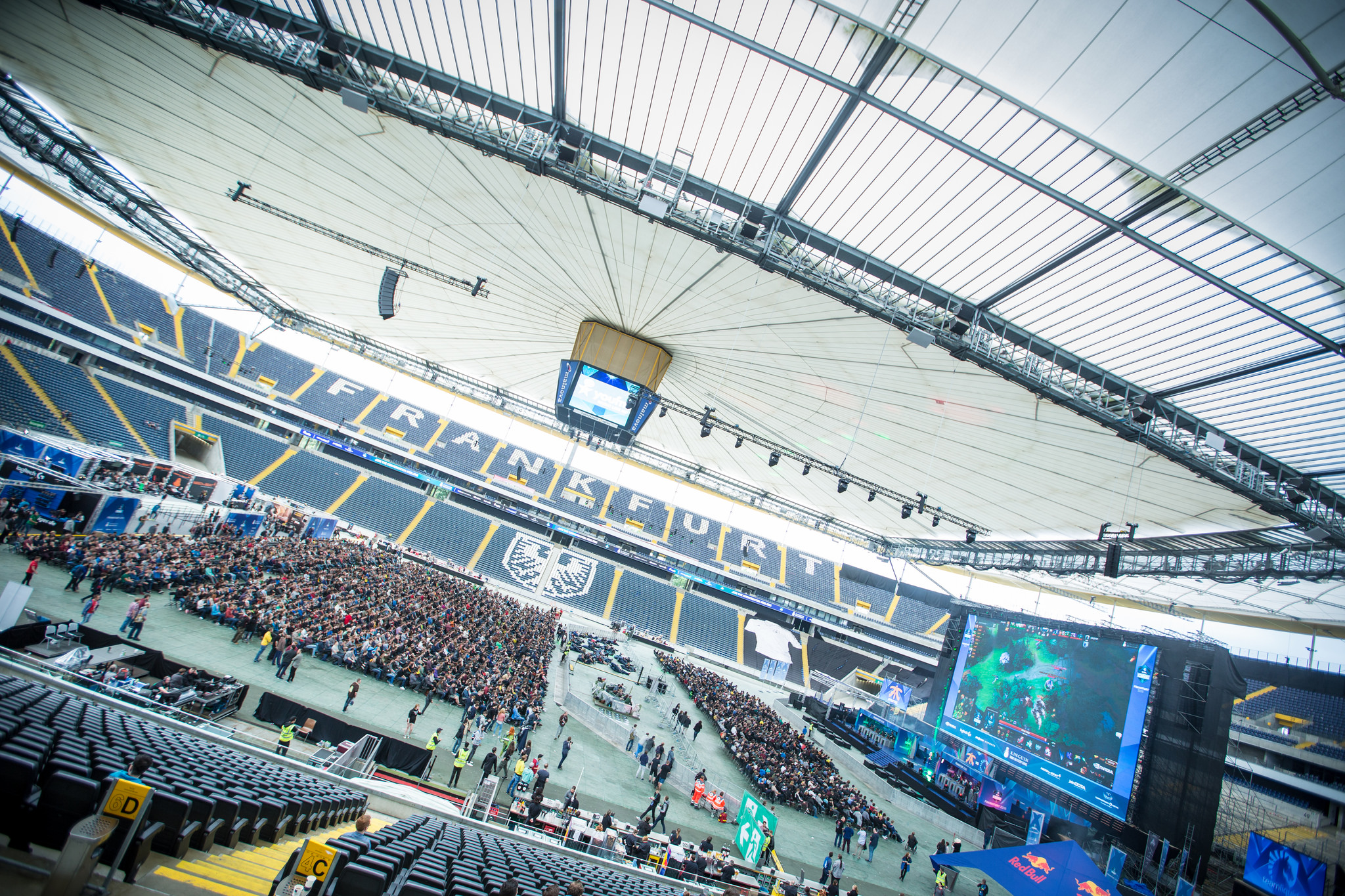
For non-criminal matters, jurisdiction will be meaningless as the independent panel cases are presented to will be making judgments based on ESIC’s own codes, issuing fines or bans as they see appropriate. But Smith believes if esports continues to grow, especially the gambling aspect, when fixes change from a few thousand dollars profit to hundreds of thousands it will catch the eyes of organised crime.
The bad news is there are already signs of this happening in South Korean StarCraft II, but the good news is criminal investigations are already collaborating with esports associations. In January of this year, the 2014 WCS world champion Lee “Life” Seung Hyun was arrested by the Changwon prosecutor’s office. It was the final loose end of a series of arrests that devastated the pro scene in South Korea, but it wasn’t brought to light by an esports integrity panel.
“The KeSPA cases are fascinating because they arose from law enforcement operations,” Smith said. “Nobody went out to look for whether Life was match-fixing, what the law enforcement were looking at was an illegal gambling syndicate and in that investigation found connections to BboongBboong, Yoda, Life et cetera. So the prosecutions actually came from the other direction, if you know what I mean, not from KeSPA but to KeSPA. And they've had to deal with it. I'm in contact with KeSPA, I must admit only recently, but that dialogue will continue because they've had to learn very quickly about stuff that, as I said earlier, you don't want to learn about this stuff, it comes and bites you.”

